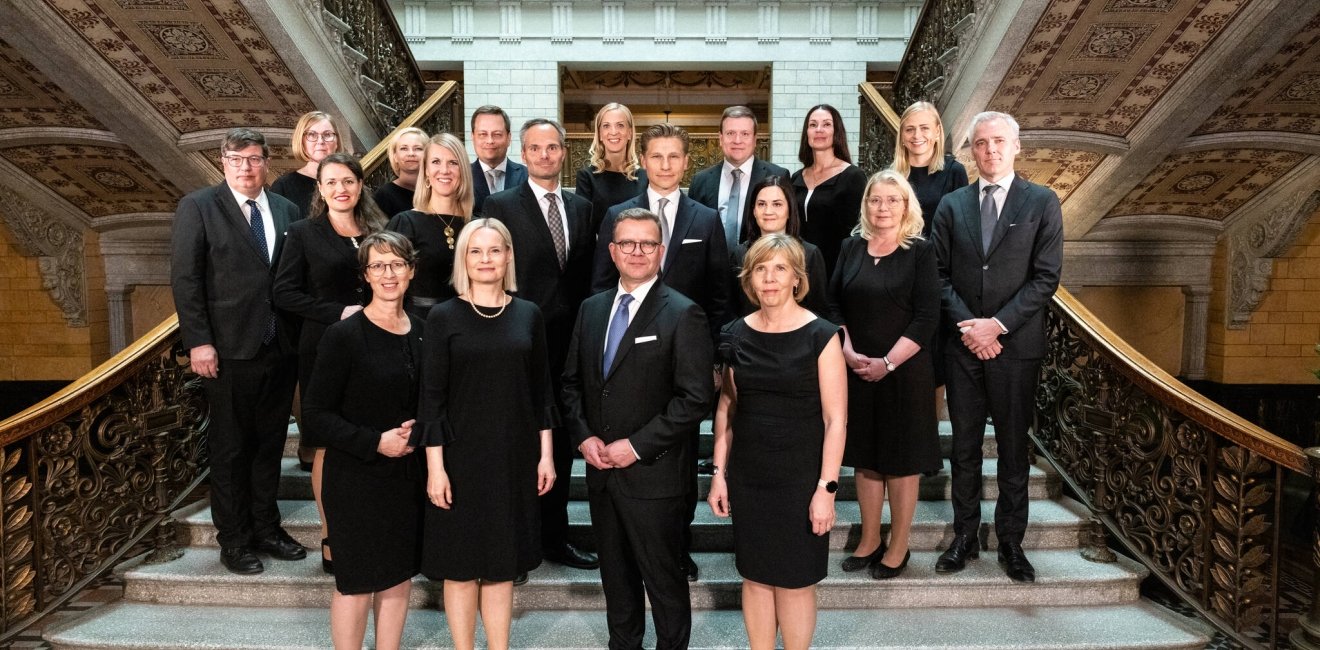Finland’s new center-right government, the Orpo Cabinet was inaugurated on June 20th. Although international media attention has focused on the government’s shift to the right and on its plans for large spending cuts and tightening of immigration, the new government released a program revealing its vision of Finland on the international stage. Russia’s invasion of Ukraine remains a central piece of the new government’s foreign and defense policy, as well as its efforts to ramp up support for Ukraine. Key policy decisions outlined in the program include: drafting the first comprehensive national security strategy, a pledge to hit NATO’s goal of spending 2% of GDP on defense, and a willingness to host a new NATO Centre of Excellence. However, the new government has signaled it will also make large cuts to the budget, especially in development aid—a key issue for the national-conservative Finns Party—but have stated this won’t affect Finland’s support for Ukraine. The plan also includes potential reforms which may change the way Finnish foreign and security policy is governed, by potentially shifting power from the President to the Prime Minister on foreign and security policy. While Finland will stay committed to fulfilling its obligations as NATO’s newest member and in its support for Ukraine, it’s worth unpacking the new government’s vision for Finland on the international stage.
Continued Support for Ukraine
The issue of helping Ukraine is mentioned many times in the new government’s program, with support for Ukraine seen as “unwavering”. Along with allies, Finland supports Ukraine’s aspirations to join NATO. Although overall development aid will be cut, humanitarian support for Ukraine will increase by €20 million annually, and the government intends to support Ukraine by €232 million for the coming four years, noting it is prepared to increase funding if necessary. The program also stresses Ukraine is to be the top recipient of foreign military and financial assistance from Finland. The new government will also “take a favorable view of the seizure of frozen Russian assets and the repurposing of revenue from those assets to support Ukraine,” a controversial but necessary option to maximize funds available to Ukraine for reconstruction. Foreign aid will also not be given to countries that “support Russia’s war of aggression”, which might lead to certain countries to lose access, especially some in Africa.
The new government will also "take a favorable view of the seizure of frozen Russian assets and the repurposing of revenue from those assets to support Ukraine".
The Orpo Cabinet clearly sees Russia as the country's top threat, describing Russia’s actions in Europe as the “gravest threat in decades”. Finland’s recent NATO membership features prominently in the program, with NATO described as the “core of Finland’s cooperative foreign policy”. Finland’s first goal in NATO is to finalize Sweden’s membership, which remains blocked by Hungary and Türkiye. Despite the new government’s commitments to cut overall spending, it pledges to consistently hit the 2% defense spending threshold throughout its term in office. As a new member of NATO eager to prove its value to the alliance, the new government “seeks to host a NATO organization in Finland, for example a center of excellence.” Although the new government doesn’t specify which area of expertise they would like the organization to concentrate on, some Finnish politicians have proposed a NATO Arctic Centre.
It is evident the new government wants to orient Finland into the West, a recurring goal for the National Coalition Party. The Orpo Cabinet wants stronger relationships with the United States - namely by concluding the ongoing negotiations on a Defense Cooperation Agreement - and with the UK, Australia, South Korea and Japan. China is also mentioned in the report as a “challenge to Finland and Europe”, and the government intends to reduce strategic “dependencies on China”. Finland’s views on China fit into a larger re-contextualizing underway in Europe, most notably in European Commission Ursula von der Leyen’s MERICS speech, with the goal of de-risking while not de-coupling from China. This program dramatically shows Finland is attuned to the major foreign policy threat posed by Russia and reflects a deeper awareness of systemic dependencies on China that could prove to be problematic.
More Hawkish EU Policy
Whereas the Orpo Cabinet’s stances on foreign and defense policy will be welcomed by its allies, especially as it relates to Russia and China, the new government’s stances on the EU will likely prove controversial. The government considers the EU as a key partner and wants the EU to “play big on big issues”. However, the Orpo Cabinet also wants the EU to return to its core. That would mean no additional budget increases, no EU-level funding instruments (with Ukraine reconstruction listed as the only possible exception), no common debt and no relaxing of state aid. The government wants every country to be responsible for their own public finances and has called for a return to the no bailout principle. The new Finnish government clearly wants the EU to return to a pre-Covid and pre-Eurozone debt crisis-era fiscal policy. However, the Orpo Cabinet is unlikely to find enough like-minded partners to assist them with these changes to the EU.
The government also wants the EU to bolster its defense cooperation, for example by creating a single market for defense material. The new government supports the increase of qualified majority voting in some areas, such as on foreign and security policy, as well as on sanction policy. The Orpo Cabinet continues with the last government's 2021 policy report - and last month’s joint statement - in efforts to speed up the decision-making process and credibility of EU’s foreign and security policy.
It is perhaps the most right-wing in recent history yet is also perhaps the most Western oriented in Finnish history.
A Historic Government
Finland’s new government is historic in many ways. It is perhaps the most right-wing in recent history yet is also perhaps the most Western oriented in Finnish history. The National Coalition Party—a party that emphasizes Western orientation—now holds the offices of Prime Minister, Foreign Minister and Defense Minister, while the current President is a former member of the party. The Orpo Cabinet’s government program shows a continued effort to support Ukraine, strong commitment to defense—including NATO—and a more hawkish EU policy. While Orpo’s Cabinet is a clear paradigm shift on the economy and immigration policies, Finland's positioning on the international stage will remain strong. The emphasis on a strong Western orientation - a consequence of Russia's invasion of Ukraine - clearly demonstrates the new government wants to firmly establish Finland as a key player in the transatlantic security community.







